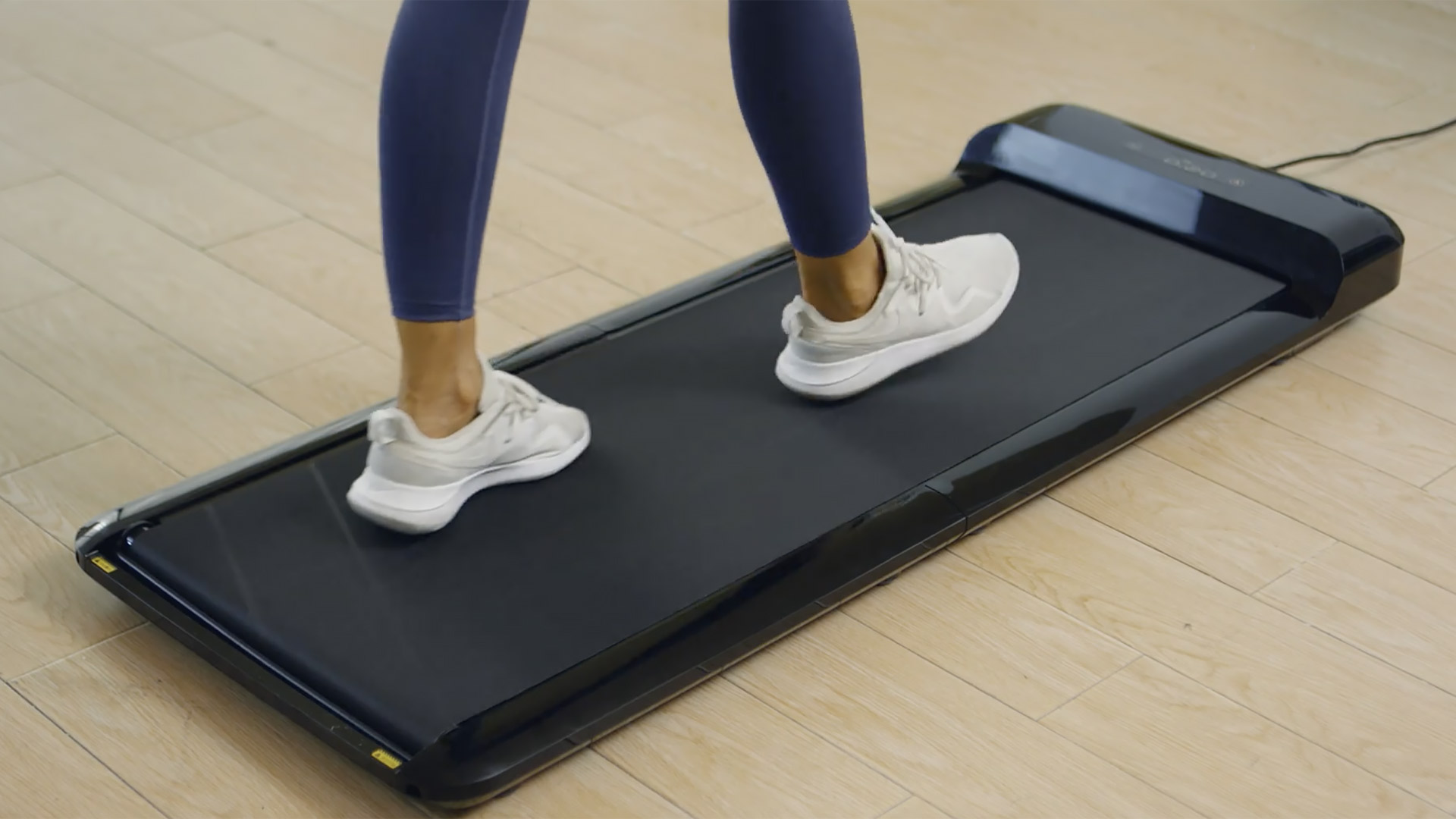
Table of Contents
- What Affects Calorie Burn from Running?
- Running Calorie Calculator: A Simple Breakdown
- Calories Burned Running for 30 Minutes
- Does Running Burn the Most Calories?
- How Office Workers Can Benefit
- FAQs
- 1. How many calories did I burn running?
- 2. How many calories are burned running a mile?
- 3. How many calories do I burn running 2 miles?
- 4. How many calories do I burn running 3 miles?
- 5. How many calories do I burn running 5 miles?
- 6. How many calories are burned running 4 miles?
- 7. How many calories are burned running 6 miles?
- Final Thoughts
Running is one of the simplest and most effective ways to burn calories. Whether you're trying to lose weight through calorie restriction for weight loss, boost your energy, or just break up the long hours at a desk, understanding your running calorie consumption can help you build better habits — and better results.
Let’s break down how many calories you burn when running, what factors affect the numbers, and how to use a running calorie calculator to stay on track.
What Affects Calorie Burn from Running?
Calorie burn during running isn’t one-size-fits-all. Several factors influence how much energy your body uses:
- Body weight: Heavier individuals burn more calories over the same distance or time.
- Running speed: The faster you go, the more calories you typically burn per minute.
- Duration/distance: The longer you run, the more total calories burned.
- Terrain and incline: Hills and uneven ground increase the burn.
- Age, sex, and metabolism: These influence how efficiently your body uses energy and contribute to your overall calorie expenditure.
A running calorie calculator combines these variables to give a personalized estimate. To get even more clarity, it helps to understand the difference between active calories vs total calories and how active vs resting calories contribute to your daily totals.
And if you're aiming to create a calorie deficit, running is one of the most effective ways to tip the energy balance. Still wondering whether calories in calories out is a valid model? This type of structured cardio gives real-world feedback that helps put theory into practice.

Running Calorie Calculator: A Simple Breakdown
Here’s a general estimate of calories burned running by weight and distance. These numbers reflect a pace of ~6 mph (10 minutes per mile).
Weight (lbs) | 1 Mile | 2 Miles | 3 Miles | 4 Miles | 5 Miles | 6 Miles |
120 | 90 | 180 | 270 | 360 | 450 | 540 |
140 | 105 | 210 | 315 | 420 | 525 | 630 |
160 | 120 | 240 | 360 | 480 | 600 | 720 |
180 | 135 | 270 | 405 | 540 | 675 | 810 |
200 | 150 | 300 | 450 | 600 | 750 | 900 |
Want a faster estimate? Use any running calorie consumption calculator online by entering your weight, pace, and duration.
Calories Burned Running for 30 Minutes
Time-based estimates are also helpful. Here’s how many calories you can expect to burn running for 30 minutes at different speeds:
Weight (lbs) | 5 mph (12 min/mile) | 6 mph (10 min/mile) | 7.5 mph (8 min/mile) |
125 | 240 | 300 | 375 |
155 | 298 | 372 | 465 |
185 | 355 | 444 | 555 |
If you’re wondering “how many calories do I burn running for 30 minutes?”, this chart gives a solid average. Running faster increases your burn, but even a steady jog makes a difference.
Does Running Burn the Most Calories?
Yes — running burns more calories per minute than most common cardio activities.
For comparison:
- Running (6 mph): ~10–12 cal/min
- Swimming: ~7–10 cal/min
- Biking (moderate): ~7–8 cal/min
- Walking (3.5 mph): ~4–5 cal/min
The high calorie burn is due to the full-body effort, continuous motion, and cardiovascular intensity. That’s why it’s a top choice for those trying to improve fitness or lose weight. If you're keeping a gentler pace, learn more about calorie jogging to compare.
Still, running isn’t your only option. If you prefer machines, our stairmaster calorie calculator shows how stair climbing holds up for calorie burn.
Curious about your daily activity? Taking 10,000 steps can burn a surprising number of calories—and yes, you even burn calories while at rest. Here’s how many calories do you burn doing nothing.
If you’re mostly seated at work, it’s worth knowing whether do you burn more calories standing than sitting. Small changes in movement can add up fast.

How Office Workers Can Benefit
If you sit most of the day, short runs can work wonders:
- Morning runs jumpstart energy and focus.
- Lunchtime jogs break the sedentary slump.
- Post-work runs release tension and help you shift out of “work mode.”
Even running 2 or 3 miles a few times a week can contribute significantly to weight management and stress relief. Pair that with a workplace wellness challenge or a group running app, and you’ve got both accountability and motivation.
That said, you don’t have to leave your desk to start moving more. There are smart ways to burn calories while sitting, especially if you incorporate tools like a standing desk into your routine.
Want to level up your setup? Consider using a standing desk for walking pad or an under desk treadmill to keep moving during calls and tasks.
You can also try standing desk exercises to activate your muscles, improve posture, and fight fatigue throughout the day.
If you're still wondering, is a standing desk good for you? Research suggests it can improve circulation, reduce back pain, and even enhance mental clarity. Not sure which setup is right for you? See the pros and cons of a standing desk vs sitting to make the best choice for your workday.

FAQs
1. How many calories did I burn running?
The number of calories you burn while running depends on several key factors: your body weight, running speed, distance or duration, terrain, and even your fitness level. On average, a person burns roughly 100–150 calories per mile. For a more precise estimate, you can use a calorie burned running calculator, which factors in your personal data such as weight, pace, and time spent running. These tools give a tailored number that’s more accurate than general estimates.
2. How many calories are burned running a mile?
On average, running one mile burns:
- ~90 calories for a person weighing 120 lbs
- ~120 calories for a person weighing 160 lbs
- ~150 calories for a person weighing 200 lbs
These numbers assume a moderate pace of around 6 mph (10 minutes per mile). If you're running faster or on an incline, you'll burn even more calories.
3. How many calories do I burn running 2 miles?
Running two miles burns between 180 and 300 calories, depending on your weight and speed. A lighter runner (120 lbs) may burn around 180 calories at a steady pace, while a heavier runner (200 lbs) may burn closer to 300. Using a running calorie calculator is a quick way to estimate your exact calorie burn based on your stats.
4. How many calories do I burn running 3 miles?
If you're wondering how many calories are burned running 3 miles, the average range is between 270 and 450 calories. A person weighing 160 lbs typically burns about 360 calories running 3 miles at 6 mph. The faster your pace and the more you weigh, the higher your calorie burn will be.
5. How many calories do I burn running 5 miles?
A 160-lb person running 5 miles at 6 mph (10 minutes per mile) will burn approximately 600 calories. This number can vary widely depending on individual factors. For example, a 120-lb person might burn around 450 calories, while someone weighing 200 lbs may burn up to 750 calories.
6. How many calories are burned running 4 miles?
A person weighing 160 lbs burns roughly 480 calories running 4 miles at a moderate pace (6 mph). Lighter runners will burn slightly less, while heavier individuals may burn 540–600+ calories for the same distance. Terrain, speed, and running form also impact the total.
7. How many calories are burned running 6 miles?
Running 6 miles can burn between 540 and 900 calories, depending on your body weight. A 160-lb person will burn around 720 calories running 6 miles at 6 mph. If you're running faster or uphill, expect to burn even more.
Final Thoughts
Running isn’t just about calories. It builds mental clarity, emotional resilience, and lasting physical health. But if you’re curious about the numbers, tools like a running calorie calculator or calorie burned running calculator can give you real-time feedback.
For office workers juggling stress and sedentary hours, adding just a few runs a week can reshape your energy, your focus — and yes, your fitness.
Spread the word
.svg)






.jpg)
.webp)
.webp)




